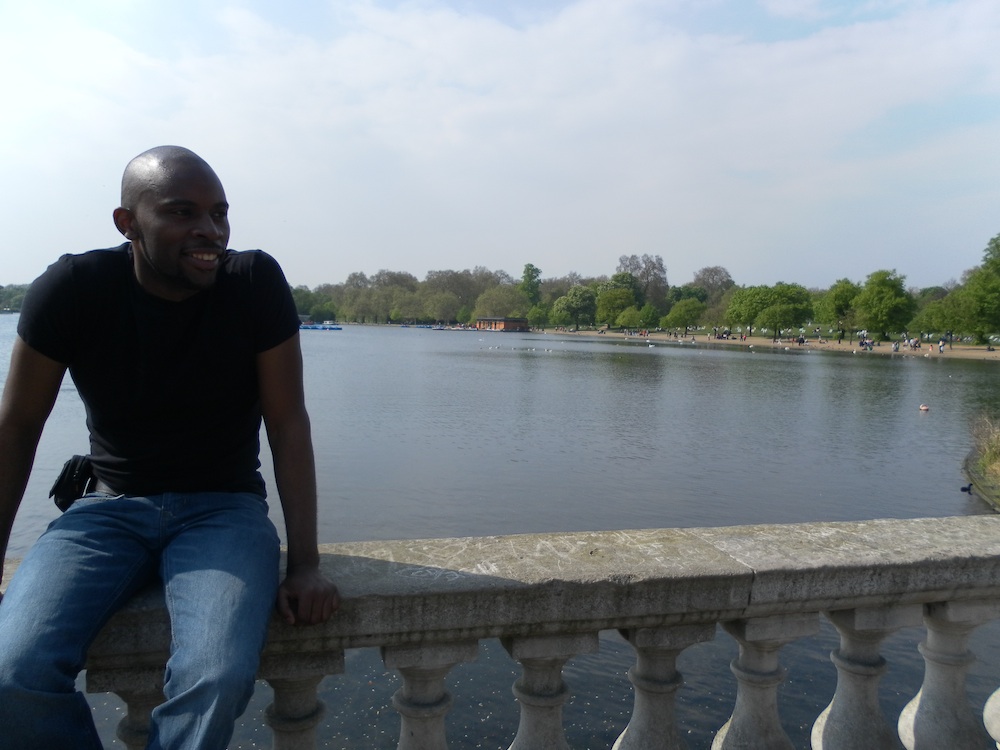

“It was a time of hope, but a lot of fear. It was also a time the country was going up in flames,” said Agostine Ndung’u ’12 about Kenya in 2007.
Five years ago, the then-high school senior had been applying for college during the widespread ethnic conflict and election violence in Kenya. His first-hand experience living in a country of crisis and chaos prompted Ndung’u to apply almost four years later to the Dalai Lama Fellowship, creating a program that could help in building peace in the ravaged areas.
“Agostine is very conscious of his responsibility towards finding relevant solutions in the areas, such as conflict resolution and peace building,” said Hampshire College lecturer George Gathigi.
Since 2007, people in Kenya have been evicted from their homes and sent to internally displaced persons (IDP) camps. Ndung’u initially saw himself involved in a resettlement program, focusing on young people and aiding their integration into the community. However, his idea changed almost entirely once he returned to Kenya. Most IDPs had been moved so that they could not be easily accessed and what Ndung’u noticed primarily was the widespread dependency among the refugees.
Traveling to Molo, a region embittered with conflicts since 1991 (when Kenya had become a multi-party democracy), Ndung’u began working with the Baraka Agricultural College, which led to his first partnership. Working together, the two decided to work on a potato seed project. These potatoes would not be grown for consumption, but as a source of income in the seed market.
“These seeds [would] propagate a message of peace and cooperation, used [as] a brand of peace,” Ndung’u said.
He thought of the seeds changing the region in a ripple effect. Through the planting of seeds and the time that took, there would be an exchange of ideas that could slowly settle in. Going beyond just eating potatoes and being satisfied, the labor would spread with each seed sold and planted by someone else to spread a message of cooperation to different youth and ethnic groups.
Providing all the inputs and funding while his partners provided the labor, Ndung’u left Kenya with all the seeds that had been planted. This December, he put the remaining funding into building a storage structure for the seeds while the people in Molo waited for prices to go up. The same month, a group from the Center for African Development and Security (CADS), based in Great Britain, contacted him to express their interest in supporting his project. Particularly interested in the idea of the seeds of peace, they’ve allowed Ndung’u to move on to the second phase of the project, beyond the Dalai Lama Fellowhip.
“We are very interested in contributing towards peace-building efforts in Kenya in light of the upcoming elections,” said Jake Peters from CADS. “Focusing on youth is important, as it is young people who have tended to be most involved and affected by the violence.”
It was his youth, however, that posed a challenge for Ndung’u at the beginning of his project. In Kenya as a college junior, he faced refugees that often were his age but were already married and working. Considered almost a child, Ndung’u formed a partnership with a local group, which proved to be invaluable because of the respect it commanded.
Being from Kenya posed another problem, even though it ultimately helped and pushed him further than a foreigner would have in the same position. Ndung’u’s familiarity with, and extensive knowledge of, the country allowed him to quickly settle in and build networks as he began his efforts almost immediately. However, the dynamic of dependency worked differently than it would have had he been a foreigner.
“People feel you are like them,” Ndung’u said. “That you understand the condition [they] are in right now, what [they] are going through.”
Almost finished with his mentoring with the Dalai Lama Fellowship, Ndung’u feels it was an invaluable experience. Returning from abroad at the beginning of last semester meant it was hard to adjust to school again with its rigorous academics and the project he needed to implement and continue. Being able to discuss and check in with the program director every two weeks kept him on track.
“The foundation and the program, the people, are more concerned about you, the fellow. It’s not the project — the project is yours. You are concerned about the project, and they are concerned about you,” Ndung’u said.
The program has also changed him entirely. Arriving as a first-year anti-capitalist and almost dropping his economics class, his choice of majors (Political Science and Black Studies) was defined by this initial stance. After being on the ground over the summer, however, he was exposed to the inefficiencies of the implementation of non-profit work. While many projects may look good on paper, receiving funding and donations from governments and the developed world, most never get off the ground because of the sheer difficulty in doing this work.
In Kenya, Ndung’u realized how economics and business fit into the whole project of solving world problems today. Being able to have a business model of his own project in Kenya empowers the work in Molo, allowing him to work and alter it as needed. When he got back from Kenya, he returned to the Economics department to take two more classes and has become interested in economics and businesses. The chance to apply what he learned and really create something that he needed to implement shifted his views on not only his studies, but also his future plans, from graduate school to possible internships.
“I would say this was a $10,000 lesson,” Ndung’u said.
The foundation and the program, the people, are more concerned about you, the fellow. It’s not the project — the project is yours. You are concerned about the project, and they are concerned about you